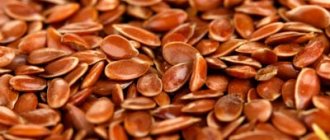Infant digestion
A newborn is constantly in a state of adaptation to new living conditions. Its organs and systems continue to develop, and the physiological mechanisms of defecation are also improved.
In an adult, the retention of feces in the rectum is ensured by involuntary and voluntary, that is, subject to the will, contractions of its muscles - the sphincters.
The urge to defecate occurs when stool comes into contact with the lower intestine. An adult is able to control the urge, but a newborn child is not.
The milk enters the stomach and triggers a gastrointestinal reflex, generating a wave of peristalsis throughout the gastrointestinal tract. Feces fall into the rectum and cause the urge to defecate. Not realizing that the conditions for defecation are, to put it mildly, unsuitable, the baby draws in his legs and strains. Emptying your bowels makes room for more food.
The frequency of stool in a newborn often coincides with the frequency of feedings, but it can be twice a day3. The feces have a yellow or yellow-brown color, sometimes with a greenish tint, a mushy consistency mixed with foam and inclusions reminiscent of cottage cheese, and the smell of sour milk.
Starting at about 2 months, the frequency of stools begins to gradually decrease. By the time complementary foods are introduced (by 4-6 months), most infants have bowel movements 2 times a day, and some - once every 2 days3. The feces thicken and take on a sausage shape - this is what all small children should have.
Up to contents
Folk remedies
Folk remedies for constipation have a number of advantages over pharmaceutical drugs. Natural preparations accelerate motility and normalize intestinal motility. Main advantages:
- the composition does not include synthetic substances, all components are natural herbs;
- do not pose a danger to children;
- quickly gives the desired effect;
- eliminate colic in newborns;
- provide a natural urge to defecate;
- are not addictive.
Infusions and decoctions of flax seeds help with constipation
Flax seeds are often used to treat constipation. Infusions and decoctions are prepared from flax for infants.
To do this, you will need ground seeds in the amount of 1 tsp. Then they are poured with 60 ml of boiling water and left for at least fifteen minutes. The child is given the medicine 3 times a day. It is important to first dilute the infusion with milk or water.
Fennel seeds can replace drug therapy for constipation in infants. Dill water is obtained from them, and it, in turn, eliminates cramps and flatulence. Dill water relaxes the intestinal muscles and ensures easy passage of stool.
At home, dill water can be prepared as follows:
- Buy fennel seeds and place them in a glass container in the amount of 1 tbsp. spoons.
- Then the infusion is left to cool for 2 hours at room temperature, and after time is filtered.
- This water is given to a newborn from a bottle some time before meals.
Laxatives are also used:
- 1 collection: licorice – 10 gr., flax seeds – 15 gr., fennel seed – 3 gr. The decoction is given to the child at night in the amount of 2 spoons.
- Collection 2: dill seed – 10 g, dandelion root – 5 g, chamomile – 40 g. All ingredients are boiled in water and given to the newborn to drink 2 times a day, 2 spoons.
- 3 collection: oregano – 1 tbsp. l., chamomile flowers - 2 tbsp. l. The ingredients are poured with boiling water and left for at least 8 hours. Filter and take twice a day.
If parents have resorted to traditional medicine methods, it should be remembered that the effect can occur as little as 20 hours after taking the decoction. It is not recommended to use the product twice a day, or use it along with other natural medicine.
What should be considered constipation in an infant?
It is understandable that the lack of stool in a baby causes concern for parents and often becomes the reason for unnecessary self-medication. On the other hand, lack of basic knowledge about the proper frequency of bowel movements in children sometimes leads to delays in necessary treatment and complications. Therefore, first, let’s figure out what constipation is.
According to generally accepted opinion, constipation in babies under three months of age is considered to be a delay in bowel movements for 2-3 days. If difficulties with bowel movements persist for two or more weeks, they speak of chronic constipation.2,3. At the same time, the frequency of stool decreases (in comparison with individual characteristics3), the feces become dense, fragmented, and acquire an unpleasant putrefactive odor.
To empty the intestines, the child strains hard and for a long time, his face turns red, his legs are drawn up to his stomach. Sometimes the contents of the rectum are so hard that they injure the delicate mucous membrane and cause painful cracks to form. In this case, the baby cries, and a strip of scarlet blood appears on the surface of the stool.
Constipation affects the general condition of the baby. He experiences pain and bloating in the abdomen, popularly called “colic,” he eats poorly, becomes lethargic and moody.
It is the appearance of common symptoms of constipation in a breastfed newborn that serves as a guideline for diagnosis4. If they are absent, the child eats well, does not spit up, gains weight normally, the condition is considered to be “pseudoconstipation”, which does not require any intervention4.
Up to contents
Signs that your baby is constipated
Constipation leads to intoxication of the body
Due to constipation, feces accumulate in the baby and lead to intoxication of the body. It is important to start therapy on time. The pathology should also be correctly identified.
Constipation is identified by the frequency of bowel movements, the consistency of stool, and its color. Constipation is characterized by the inability to defecate without pain.
Newborns have bowel movements at least 4 times a day. The number of bowel movements can reach up to 10 times. By the first year of life, the child has bowel movements much less frequently - once every 24 hours.
The frequency of bowel movements varies for each baby. If the child is not capricious and the process of defecation occurs painlessly, but less frequently, there is no need to worry.
The alarm should be raised if an infant's stool becomes hard and regular stool changes its consistency. Constipation can be spastic and atonic. The difference between them is significant, and it is important to distinguish them from each other in order to select the correct treatment.
Atonic constipation is characterized by the density of stool. It is excessively hard and large in diameter in the first portion. When defecating, the baby feels pain at the beginning of the process, and then relief follows. So the next portion is a mushy mass.
Spastic constipation occurs when the intestinal walls spasm. The masses look like sheep feces. It is solid and separate feces in the form of small peas. The entire process of defecation is accompanied by pain. Spastic constipation can also be identified by severe bloating.
Why might a newborn be constipated while breastfeeding?
Difficult bowel movements and lack of stool in infants in 95% of cases are caused by various functional disorders in the intestines1,5. The remaining 5% is due to diseases that disrupt the formation, movement and excretion of feces1,5.
Organic constipation
This type of defecation disorders is most often detected in the first days or months of a baby’s life1,3. Its cause is anomalies in the development of the intestine and rectum in particular, various neurological diseases accompanied by slowing and incoordination of gastrointestinal motility, metabolic disorders against the background of reduced function of the thyroid gland and brain centers regulating the endocrine system, cystic fibrosis, Hirschsprung's disease1,3.
In order not to miss these diseases, if constipation occurs in children from birth to 3 months, it is better to immediately consult a doctor. If the examination does not reveal any organic pathology, we are talking about functional constipation3.
Functional constipation
The nervous system is of great importance in the regulation of stool, and since it is not yet sufficiently developed in a newborn, there is always room for constipation to occur. Functional constipation against the background of intestinal dyskinesia, accompanied by weakened peristalsis or spastic contractions of the intestine that disrupt its patency, is the most common type of disorder3.
Other causes of functional constipation in infants:
- immaturity of the child and his digestive system, accompanied by a late “start” of digestive enzymes, long-term retention of food masses in the stomach and intestines, imperfection of the receptor apparatus of the rectum, which triggers defecation3;
- consequences of intrauterine oxygen starvation, affecting the functioning of the central nervous system and the regulation of intestinal motility;
- general muscle weakness of the baby due to prematurity, iron deficiency or active treatment of rickets with vitamin D3;
- intestinal dysbiosis, which occurs, for example, when antibiotics and pathogenic microbes influence the weak and unstable microflora of the children’s intestines3;
- allergy to cow's milk proteins: it can appear already during breastfeeding if the mother loves dairy products and often consumes them4.
Up to contents
What are the medications for constipation for newborns?
Products with a laxative effect are produced for children from the first days of life. In pharmacies you can purchase medications in various forms: suppositories, syrups and solutions.
Candles
Candles for newborns for constipation
When the problem of bowel movement occurs rarely, children's doctors recommend purchasing rectal suppositories.
Their action occurs locally, and is not so safe for the rest of the body. It is recommended to use glycerin-based suppositories. Used for constipation in babies up to a month old, 1/8 part. From the age of one month, it is allowed to double the dosage.
Suppositories can soften stool and ensure a softer and more painless bowel movement process.
Solutions and syrups
It is important to choose the one from many brands that will really help your baby. Mothers will be helped by a note about the age category of the drug. It is also necessary to carefully study the instructions for use, and, if possible, do not use the medications yourself without a doctor’s prescription.
Laxative Prelax
Prelax - the drug contains lactulose. It improves intestinal motility and improves its natural microflora. After administration, the drug takes effect within an hour. It can also be taken as a preventative.
Normolact is a lactulose-based laxative. The drug is given to the child starting with a high dose, then it is reduced if the desired result is visible. The medicine is not addictive and can be used for a long time.
Duphalac is a laxative made from natural ingredients. The syrup can be used in the treatment of constipation from the first days of a child’s life. The maximum effect of the medicine is achieved within 24 hours after taking it.
Temporary stool disorders
Difficulty in defecation may be temporary. Many babies experience difficulty with bowel movements - they strain, grunt, and whine during bowel movements, although their stool remains soft and mushy. This condition is quite normal for children in the first two months of life; it is associated with the immaturity of the nervous system and is called “dyschezia”4.
Temporary disruption of bowel movements in a child may be due to the following factors:
- lack of fluid - in some cases the child needs to be supplemented with food, although some mothers believe that when breastfeeding, the baby receives a sufficient amount of fluid in the form of milk2.5;
- general dehydration of the baby against the background of high fever, vomiting and diarrhea, for example, with an intestinal infection or ARVI, when a large amount of water is lost through sweat, vomit and liquid feces 4;
- malnutrition of a nursing mother: a small amount of fluid, following an unbalanced diet, low fiber content and a large number of “fixing” foods in the diet2;
- underfeeding of the child due to a deficiency of breast milk (in this case, the woman may not even suspect that she has little milk) and the mother’s “tight” breasts, general weakness and persistent regurgitation in the baby2,5;
- too early and irrational introduction of complementary feeding2;
- abuse of enemas and means of mechanical stimulation of defecation in a child (gas tube, irritation of the anus, etc.)2;
- psychological factors2, which include the mother’s psycho-emotional problems, the absence of a mother and getting used to a nanny, moving, frequent contacts with new people;
- any diseases and teething - they affect not only the well-being, but also the emotional and psychological state of the child, and at the same time - on intestinal motility.
Elimination of all of the above factors leads to spontaneous normalization of the child’s stool.
Up to contents
What to do for constipation in a newborn while breastfeeding
You need to act based on the cause of constipation. When organic constipation is diagnosed, treatment for the underlying disease is prescribed by a doctor. Solving the problem leads to normal bowel movements.
For functional constipation, doctors recommend:
Breastfeed2.
Breast milk, containing the mother’s immune factors, provides the baby’s natural protection from infections, promotes the formation of his intestinal microflora and the development of the digestive system as a whole2. In case of weak lactation and lack of breast milk and unstable stool with a tendency to constipation in a child, doctors recommend supplementary feeding with adapted milk formulas with the addition of prebiotics2. They help maintain intestinal microflora, on which digestion partly depends2.
Follow the diet of a nursing mother
The composition of breast milk directly depends on the mother's nutrition, therefore, by changing nutrition, you can influence the baby's diet4. For the functioning of the baby’s gastrointestinal tract, it is important to maintain a water regime, vegetables, fruits, cereals, wholemeal bread eaten by the mother, that is, foods high in fiber4. You should limit the consumption of foods that provoke increased gas formation: cabbage, onions, tomatoes, rice, legumes, black bread, pears, grapes, mushrooms, pickles, smoked meats and spices3.
Prunes, dried apricots and simple boiled beets will help as a natural laxative during breastfeeding for constipation in a newborn - you just need to include them in the diet.
Fermented milk products are useful for maintaining intestinal microflora2. But if a child is diagnosed with intolerance to cow's milk, the nursing mother will have to completely abandon dairy products made from it4.
Keep your child physically active
A well-organized daily routine and physical activity are the most important factors in the treatment of constipation in a child2. Physical activity is selected individually according to the age of the child2. For newborns and infants during the first 5 months of life, their natural activity and special gymnastics are sufficient2. It is very important that clothes do not restrict the child’s movement and allow him to independently improve his motor skills in the process of exploring the world.
Do a belly massage
First of all, after feeding, you must keep the baby in an upright position so that he burps air, and then lay him on his tummy.
Abdominal massage involves lightly stroking the tummy in a clockwise direction, that is, in a circle, starting from the right iliac region and ending with the left iliac region. In this case, the child should lie on his back. At the end of the procedure, you need to hold the ankle joints and press the baby’s legs one by one to the tummy. This stimulates the passage of gases and bowel movements.
Use gas-reducing products wisely
A large amount of gases stretches the intestinal walls, weakens its peristalsis and leads to colic. Dill water, light fennel tea, and simethicone-based medications can relieve symptoms associated with constipation4.
In some cases, means that help mechanically remove gases from the intestines are useful, for example, a gas tube or enemas4. However, their frequent use aggravates the problem of constipation: the baby’s gastrointestinal tract begins to “become lazy” and ceases to independently perform its functions3.
Microclysters MICROLAX®
In the complex treatment of constipation in breastfed newborns, microenemas occupy a special place. They promote bowel movements and thereby alleviate the baby’s suffering.
MICROLAX® for children from 0 years old was created for the smallest children, equipped with a special short “spout” and can be used from birth to 3 years6. The drug contains sodium citrate, which displaces water from the stool, sodium lauryl sulfoacetate, which thins the contents of the rectum, and sorbitol, which stimulates the flow of water into the intestines6.
By enhancing each other's action, MICROLAX® components are able to soften stool and facilitate bowel movements6. In this case, the effect of the drug can begin in 5-15 minutes6.
It is important that the effect of MICROLAX® is limited to the final intestine. It is not absorbed, does not enter the general bloodstream and therefore does not affect the functioning of other organs and systems6.
For ease of use, MICROLAX® is available in the form of a disposable microenema equipped with a shortened spout tip6. It is enough to break off the seal and the microenema with 5 ml of the drug will be ready for use.
Up to contents
Glycelax for children - life without constipation
Constipation is one of the most common diseases of the digestive tract in children and adults. There are many reasons that provoke a violation of the movement of feces. This could be some kind of obstruction in the intestinal lumen, endocrinological or neurological disorders, infectious diseases, etc. Depending on the cause of constipation, treatment is selected to combat it.
What is constipation?
The answer to this question seems obvious. Constipation is an infrequent bowel movement. However, modern medicine understands constipation not only as a decrease in stool frequency, but also as unfavorable changes in its character. Too hard, dry stools and/or painful bowel movements are also considered constipation, even if the child walks a lot every day.
You should consult a doctor if your child experiences:
- from birth to 6 weeks, stool less than once a day;
- on exclusive breastfeeding from 6 weeks to 6 months, stool less than once every 5 days (Breast milk is very well absorbed, so in such babies, bowel movements may occur quite rarely, since feces are formed more slowly. But this only applies to breastfed children feeding before the introduction of complementary foods!);
- 1 year – 3 years stool less than 5–6 times a week;
- over 3 years of age, bowel movements less than 3–4 times a week;
- at any age, painful bowel movements, as well as stools mixed with scarlet blood;
- abdominal pain that goes away after bowel movements;
- dense, dry or excessively bulky, “thick” stools.
If such symptoms appear, you should definitely consult a doctor - a pediatrician or pediatric gastroenterologist. Only a specialist, after examining the child and, if necessary, prescribing additional tests and examinations, will be able to find the cause of bowel dysfunction and recommend treatment.
How to help your baby
The doctor will select the main treatment. And before visiting him, you can do the following.
1. Monitor the child’s drinking regime.
One of the common causes of constipation is lack of fluid. To ensure the required amount of water, you need to exclude teas, sweet drinks, soda and offer plain water as a drink as often as possible. If the baby flatly refuses to drink it, you can give him 1-2 spoons of water every 30-60 minutes. It’s not difficult to drink two spoons, and within a day the required amount of liquid will be gained at this rate.
2. Analyze the child’s nutrition, increase the amount of foods rich in dietary fiber.
A deficiency of dietary fiber causes constipation in both children and adults. Experts recommend that preschoolers and schoolchildren eat up to 300 g of vegetables daily (excluding potatoes!) and about 200 g of fruit. These can be salads, vegetable side dishes (including those made from frozen vegetables!), fruit desserts and even baked goods with the addition of not only fruits or berries, but also, for example, grated carrots, pumpkin or beets.
For young children, in addition to the presence of vegetables and fruits in their diet, it is also necessary to check the consistency of the food. Food that is excessively crushed or pureed also causes constipation. From 8–12 months, children can and should eat dishes with cereals, small soft pieces of vegetables, meat, etc.
3. Use children's laxatives to restore regular bowel movements and prevent the development of painful bowel movements, which only worsen the problem.
If a child experiences discomfort, complains of abdominal pain, strains intensely, or, conversely, suppresses the urge to defecate, fearing that it will be painful, the baby should be given a laxative. In order not to injure the delicate intestinal mucosa, avoid enemas or irritation of the anus with foreign objects (a bar of soap, a cotton swab with Vaseline, etc.). It would be more correct to use such a proven remedy as suppositories with glycerin.
Glycerin softens stool, enhances bowel movements and accelerates the passage of stool, and lubricates the rectal mucosa. Moreover, there is a special children's form of such suppositories - Glycelax for children.
Glycelax for children:
- is not absorbed, which means it does not have a negative effect on the child’s body as a whole;
- simple and easy to use, and 1 candle per day is enough to solve the problem;
- loosens stools within an hour (usually in the first 15–45 minutes) after using the suppository;
- does not contain dyes or flavors;
- Allowed for children from 3 months.
There are contraindications, it is necessary to consult a specialist.
Product by topic:[product](Glycelax 0.75 N10 SUPP RECT D/DET)
What not to do
First of all, don't wait for the problem to go away on its own. Repeated and prolonged bowel movements in infants always require consultation with a pediatrician.
In addition, it is not recommended:
- feed the baby strictly according to the clock - the baby himself “knows” how much milk he needs and when; feeding on demand promotes normal bowel function and, in addition, stimulates lactation in the mother;
- supplementing breastfeeding after regurgitation: this is a normal act that helps the baby get rid of air and excess food trapped in the stomach;
- supplement the baby with formula or completely switch to artificial feeding, believing that the baby does not have enough milk - the guideline for the fact that he has enough food should be good sleep and normal weight gain;
- frequently use a gas tube, resort to enemas and other methods of stimulating bowel movements;
- use traditional methods of stimulating the rectum, for example, inserting a piece of soap into the anus: soap irritates the mucous membrane and can cause a chemical burn; the laxative effect can be achieved using gentle means, for example, MICROLAX® microenemas;
- take medications without consulting a doctor - all of them can enter the child’s body along with milk and affect his body in general and the functioning of the gastrointestinal tract in particular.
Up to contents







